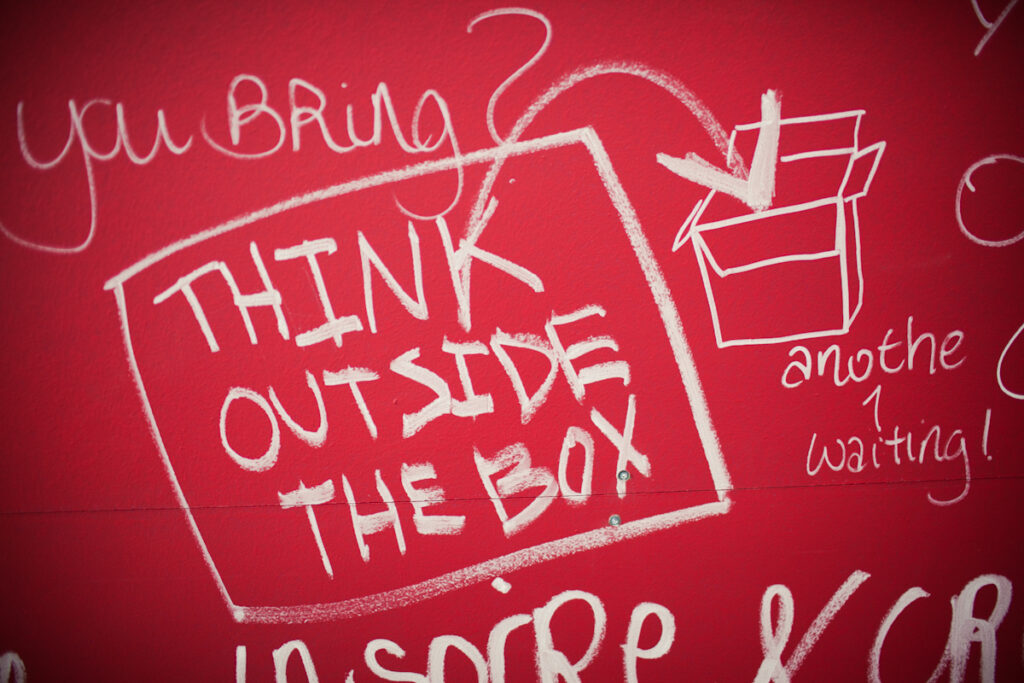By Maria Carracedo
Fundación INTRAS

We have talked a lot in this blog about the emotional and psychological benefits of improv theatre to booster wellbeing and to deal with these times of uncertainty, but improv theatre has an additional cognitive effect that is not so known: it improv promotes divergent thinking.
Divergent thinking is what we colloquially call as thinking out of the box, that is to say the process of creating multiple, unique and original ideas or solutions to a problem that you are trying to solve. Through spontaneous, free-flowing thinking, divergent thinking requires coming up with many different answers or routes forward, some of them probably not explored before. Divergent thinking contrasts with logical thinking, which seeks a single correct solution based on our prior knowledge and arranged in a logical manner. In contrast, divergent thinking typically occurs spontaneously, in a fluid way, such that many ideas are generated in a small amount of time and these unexpected connections are made in a short period of time.
The benefits of training divergent thinking are multiple. In an article published in the Psychestudy website[i], points out that a divergent thinker doesn’t always see the world as Black and/or white. There is more to it. Not every question has to be answered in a yes/no. A divergent thinker is broad minded and isn’t focused on finding the absolute answer every time, but rather he/she is more focused on keeping the options open. Not being linear towards finding a solution leads to higher creativity.
A recent study shows that practising improv improves divergent thinking[ii]. The paper follows an experimental method from previous research linking improvisation training to improvements in divergent thinking in the laboratory (Lewis & Lovatt, 2013), and includes an additional dependent variable, uncertainty tolerance, which has been broadly implicated in anxiety and depression (McEvoy & Mahoney, 2012). In two experiments participants completed measures of divergent thinking, uncertainty tolerance, and affective well-being before and after engaging in 20 min of improv exercises or a matched control condition including social interactions. The results show that improvisational theater training can improve divergent thinking (e.g., Lewis & Lovatt, 2013; Sowden et al., 2015), and provides new findings that improv can boost positive affect and increase uncertainty tolerance relative to other social interactions. Then through the practise of improvisational theatre we can train our divergent thinking and thus find new and original solutions to any problems and difficulties, just by thinking out of the box.
[i] Praveen Shrestha, «Divergent Thinking,» in Psychestudy, November 17, 2017, https://www.psychestudy.com/cognitive/thinking/divergent
[ii] Felsman, Peter; Gunawardena, Sanuri; Seifert, Colleen, “Improv Experience Promotes Divergent Thinking, Uncertainty Tolerance, and Affective Well-Being” in Elsevier, 2020/03/01. Contents lists available at Science Direct Thinking Skills and Creativity, https://www.journals.elsevier.com/thinking-skills-and-creativity.
